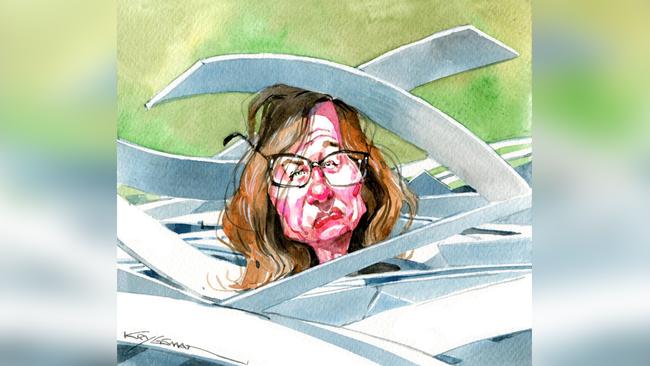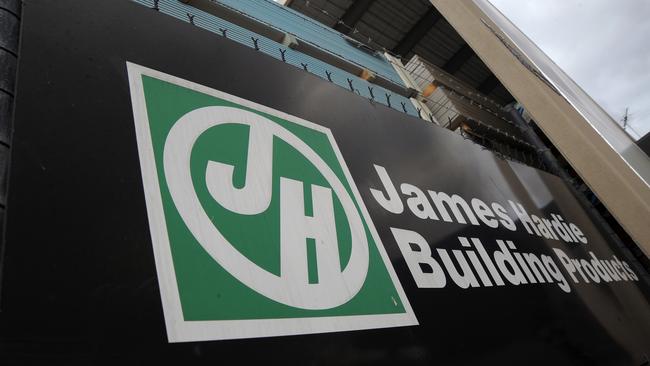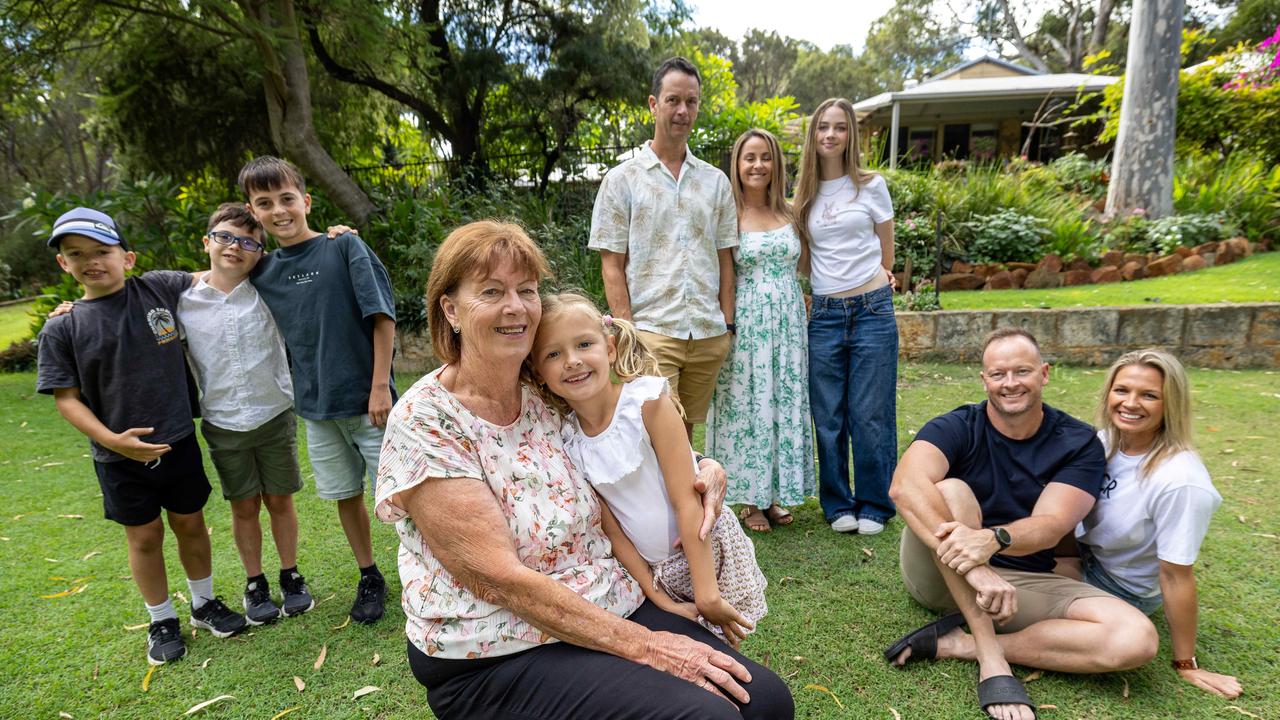
In an unprecedented move, Australia’s biggest fund managers have combined to protest against the ASX’s actions, without scrutiny, in ushering in the $14bn James Hardie-Azek merger.
The last hope is now a plea for at least a shareholder vote on Hardie’s demand to move to a primary listing in New York.
The move would free it from controls over the amount of stock that can be issued and myriad rules on executive pay.
The highly dilutive deal will proceed because the ASX, as it belatedly published on Thursday, has granted Hardie a waiver to exceed the normal limit of 15 per cent of issued capital before a shareholder vote is required.
The waiver was granted on the fact that the deal was signed in the US, even though the rules are different. In this case, Hardie will issue 35 per cent of issued capital to pay for the deal which, depending on whose numbers you use, is at least 7 per cent dilutive.
Given the woeful performance of the ASX under CEO Helen Lofthouse in its own technology management, the mere concept that the ASX is the beat cop, judge and jury on listing rules and governance is bizarre and a sick joke, to say the least.
As noted recently, its regulators, ASIC and the RBA, are mulling a final remedy in trying to control their wayward child via structural changes to remove the clearing and settlement functions to third-party ownership.

As noted in a separate news report, 21 of Australia’s top fund managers have written to the ASX demanding a say in the Hardie change in domicile and protesting against the exchange’s actions.
Under the listing rules, if a company issues more than 15 per cent of its stock it must gain shareholder approval, but in this case an exception was granted because the merger was consummated in the US. This is despite the fact Hardie’s primary domicile is still Australia.
The existence of the ASX waiver was only confirmed on Thursday, which is again an outrage.
The list of fundies who led the protest include some of the biggest names in the sector, including Mark Delaney from AustralianSuper, Fidelity’s Paul Taylor, Unisuper’s John Pearce, Allan Gray’s Simon Mawhinny, Airlie’s Matt Williams, Troy Angus from Paradice, Andrew Flemming from Schroder and Ausbil’s Paul Xiradis.
The top nine investors in Hardie own 51 per cent of the company and the 21 signatories to the ASX protest letter own more than half the company. But ASX decisions have robbed this group of a say on the fate of their holdings and the future of the company.
That is a damning indictment of ASX governance controls.
For its part, Hardie has long perfected the art of jurisdiction hopping for tax and legal liability reasons.
Still action on climate
The almost daily news posts detailing more withdrawals from public climate commitments does not equate to corporate back-tracking on their progress towards net zero emissions.
There is a reset as companies move from greenwashing to green hushing to green chilling, and leadership is needed from government to change the perceptions.
Climate Active is a case in point, with a slew of withdrawals including from Telstra and carbon adviser Pollination, Canva and Australia Post.
The withdrawals from US-sponsored net zero programs are a convenient excuse from those who don’t want to cut emissions.
Likewise, naysayers say integrity issues have beset offset schemes, which has made companies wary about commitments.
The program was started under Julia Gillard in 2010, but the Morrison government reshaped it in 2019 and left it as a branding organisation of little value to a slew of companies. The question is why pay to get a green tick when your carbon reduction program is getting you a tick already. The answer is the program, at least before being denuded by the previous government, is meant to drive more commitment.
Anthony Albanese may not have hit the ball out of the park on climate issues, but at least it is edged in the right direction.
The first report on the revised Safeguards policy showed a 2 per cent reduction by the big emitters, but 62 facilities received 8.3 million credits for beating their required 4.9 per cent reduction in emissions. Another 142 facilities surrendered credits or acquired offsets because they were above baselines.
Australian credit units are now trading at about $34 a tonne, near the 12-month low and below last September’s $42.50 high, driven in part by the Donald Trump-inspired climate backdowns and concern over heavy demand due to Safeguard performance.
Under the present government, just one new carbon abatement method was approved in 2024 for environmental planting, which is reforestation.
Multibillion-dollar investments in programs such as sustainable aviation fuel (SAF) are waiting on government action, but this government has failed to take leadership.
Airbus recently committed to a book and claim system for SAF that is like an offsets program where an airline will commit to a certain level of SAF but the uptake will be taken by a third player.
The big white hope is a meaningful SAF policy in Australia, including joining key markets such as Europe, Singapore and Japan with a small mandated level of SAF use per flight and tax credits to encourage industry investment.
In a cost-of-living election, mandates that would increase fares, while necessary, is not electorally popular.
Concerns on dumping
The US-China trade war started by the imposition of US tariffs has sparked obvious concerns that Australia will be flooded by cheap imports.
The government has quietly promised to increase funding for the Anti-Dumping Commission by $5m a year to help deal with the expected increase in cases. No figures were available on the prior ADC budget.
On April 1, Industry Minister Ed Husic handed new ADC chief David Latina a statement of expectations, including that he “expects [Latina] to prioritise effective remedies for Australian manufacturers and producers being injured by dumping and subsidisation, including issuing preliminary affirmative determinations, as soon as possible where the circumstances warrant”.
“There is a significant risk for trade diversion and dumping into the Australian market undermining otherwise competitive Australian industry,” he added.
No mention of the fact 70 per cent of measures imposed apply to the steel industry, which is comprised of two monopolies making different types of steel.
ACCC funds cut
Treasurer Jim Chalmers talks up every time he throws the ACCC a few dollars to help boost industry competition, but in the last budget the ACCC had its funds cut by 8 per cent, or $33m.
ASIC, by contrast, has enjoyed steady increases.
Both regulators receive ad hoc boosts when the need arises, such as the recent supermarket report that was factual and failed to give the government the political ammunition sought on a cost-of-living election.
The ACCC also received extra funds last year to help pay for a doubling of its merger division to 146 people.






Voting is compulsory in Australia, except it seems when you are a listed company trying to avoid shareholder scrutiny and all those tiresome rules about share issues and management pay.